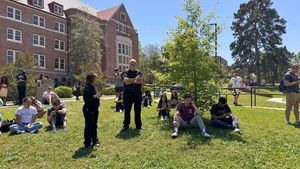On April 9, 2025, various cities across Brazil will observe a municipal holiday, each with unique historical and cultural significance. While not a national holiday, these local celebrations play a crucial role in preserving traditions and fostering community identity.
Arauá, a historic town in Sergipe, celebrates this day as an opportunity to reflect on its roots and traditions. The local government emphasizes the importance of cultural heritage, encouraging residents to engage in events that honor their history.
In Pinhais, Paraná, the holiday marks the city’s anniversary, making it a significant occasion for the community. Residents come together to celebrate the growth and development of one of the state’s most populous cities, showcasing local achievements and fostering a sense of pride.
Engenho Velho, a small town in Rio Grande do Sul, utilizes the holiday to promote cultural events that reinforce its local identity. Despite its modest size, the community hosts various activities that highlight its rich traditions, inviting residents and visitors alike to participate.
Campos do Jordão, known as a popular tourist destination in São Paulo, takes advantage of the municipal holiday to organize cultural and tourist events. This strategy not only celebrates local culture but also attracts visitors, boosting the local economy during this festive period.
In Ipatinga, Minas Gerais, the holiday serves as a chance for workers to rest and reconnect with their community. The industrial city recognizes the importance of downtime for its workforce, allowing them to engage in local festivities and strengthen community ties.
Juruti, located in Pará, celebrates its 142nd anniversary on April 9, marking a significant milestone in its history. The city takes this opportunity to reflect on its cultural impact in the Amazon region, showcasing its unique heritage through various events.
Balneário Rincão, the newest city in Santa Catarina, also observes the holiday with local and tourist events, promoting community integration and growth. This celebration is vital for the city’s identity as it continues to develop and establish itself within the region.
São Sebastião do Maranhão, another city in Minas Gerais, uses this day to commemorate its cultural and historical roots, providing residents with a moment of reflection and local festivities. Such observances highlight the importance of remembering and honoring local history.
While these holidays are not recognized nationally, they are essential for maintaining local traditions. The pause in work and commerce allows residents to celebrate and remember their cities' significance in Brazil's history. On these days, banks and many businesses close, emphasizing the day's importance.
According to Brazilian law, specifically Law No. 9.093 of 1995, states have the authority to establish state holidays, while municipalities can create up to four local holidays each year, including Good Friday. This legal framework allows for a diverse range of celebrations across the country, reflecting the unique histories and cultures of different regions.
On April 9, 2025, various Brazilian cities will commemorate their unique histories and cultural identities. However, it is crucial to understand the difference between a holiday and a point of optional work. Holidays are officially recognized commemorative dates where labor and commercial activities are typically suspended. In contrast, a point of optional work allows employers to decide whether to grant time off, often applying to public servants.
The distinction between holidays and points of optional work can lead to confusion. Holidays are established by federal, state, or municipal law, resulting in the suspension of business operations, while points of optional work are recommendations that do not obligate private companies to cease operations. This flexibility allows employers to determine whether to grant time off, depending on their specific circumstances.
As 2025 unfolds, it’s essential for residents to stay informed about upcoming holidays. Six national holidays will fall on weekdays, providing opportunities for extended breaks. The national holidays for the year are as follows:
- January 1 (Wednesday) - Universal Brotherhood
- April 3 (Friday) - Passion of Christ
- April 21 (Monday) - Tiradentes
- May 1 (Thursday) - Labor Day
- November 20 (Thursday) - National Day of Zumbi and Black Consciousness
- December 25 (Thursday) - Christmas
These holidays provide a chance for Brazilians to celebrate their heritage and enjoy time with family and friends. The Consolidation of Labor Laws (CLT) generally mandates time off on national and religious holidays, ensuring that workers can enjoy leisure time. However, in recent years, there has been a trend toward increased flexibility regarding holiday observance, often negotiated through agreements between unions and employers.
Each union can establish different agreements regarding work on holidays, making it vital for workers to understand their rights and the specifics of their agreements. This awareness is essential for navigating the unique landscape of holiday observance in Brazil.
In summary, while April 9, 2025, may not be a national holiday, its observance in various cities across Brazil highlights the importance of local traditions and community identity. Each celebration serves as a reminder of the rich cultural tapestry that makes up the nation, allowing residents to honor their past while looking toward the future.






